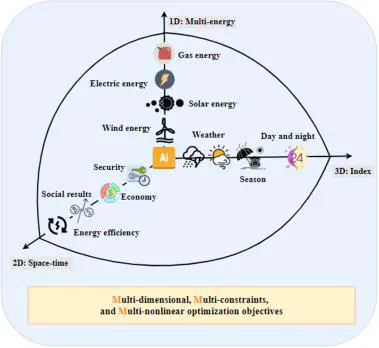AI-oriented Smart Power System Transient Stability: The Rationality, Applications, Challenges and Future Opportunities
 Image credit: SETA
Image credit: SETA
Abstract
Nowadays, the power grid has become an active colossal resource generation and management system due to the wide use of renewable energy and dynamic workloads processed through intelligent information and communication technologies. Several new operations exist, such as power electrification, intelligent information integration on the physical layer, and complex interconnections in the smart grid. These procedures use data-driven deep learning, big data, and machine learning paradigms to efficiently analyze and control electric power system transient problems and resolve technical issues with robust accuracy and timeliness. Thus, artificial intelligence (AI) has become vital to address and resolving issues related to transient stability assessment (TSA) and control generation. In this paper, we provide a comprehensive review on the role of AI and its sub-procedures in addressing problems in TSA. The workflow of the article includes an AI-based intelligent power system structure along with power system TSA and AI-application rationality to transient situations. Outperforms other reviews, this paper discusses the AI-based TSA framework and design process along with intelligent applications and their analytics in power system transient problems. Moreover, we are not limited to AI, but we also combine the direction of big data that is highly compatible with AI, discusses future trends, opportunities, challenges, and open issues of AI-Big data based transient stability assessment in the smart power grid.